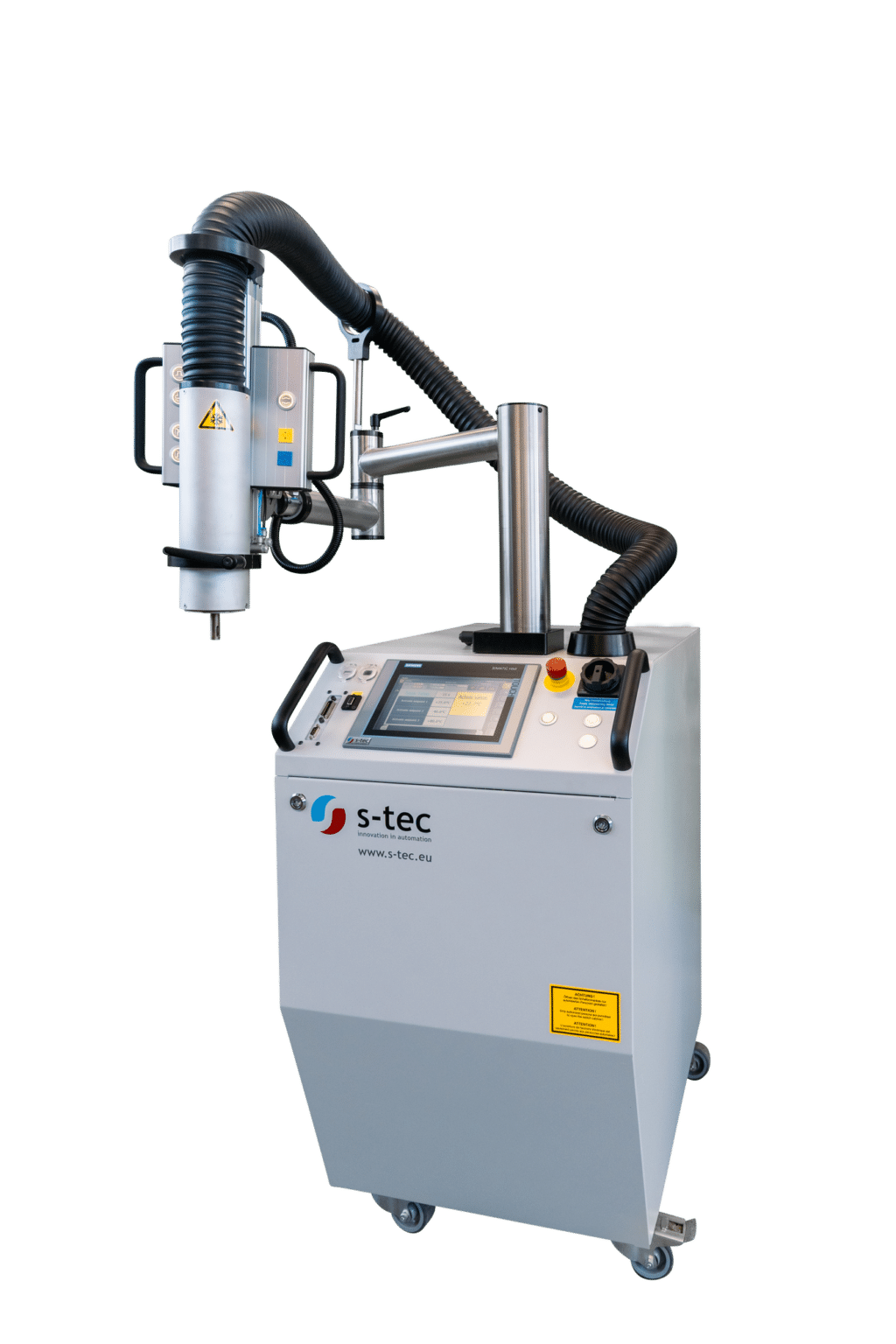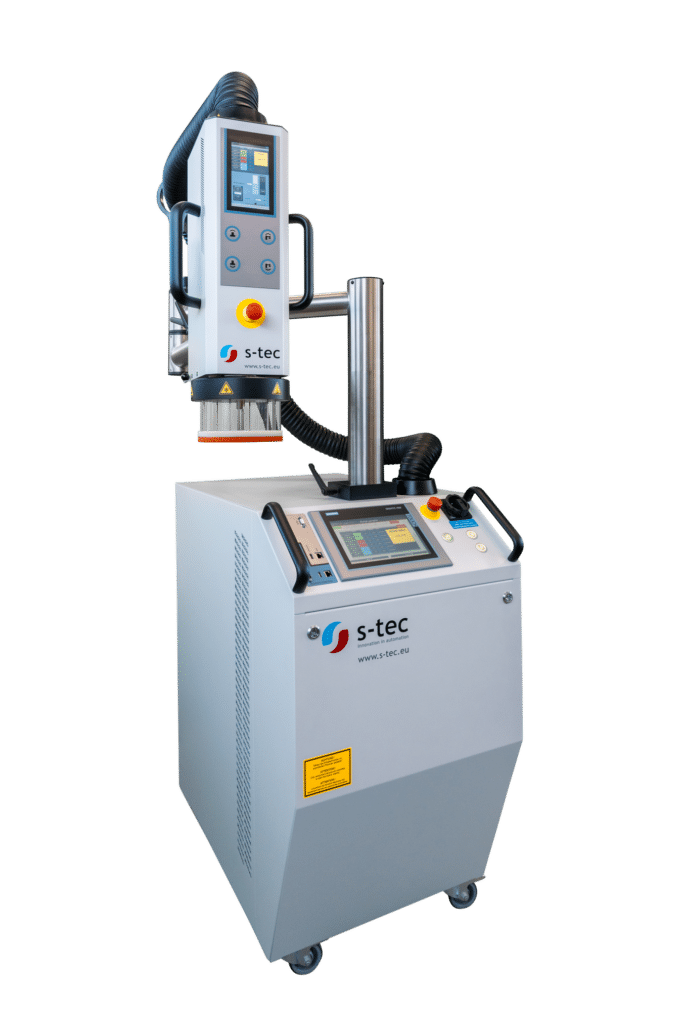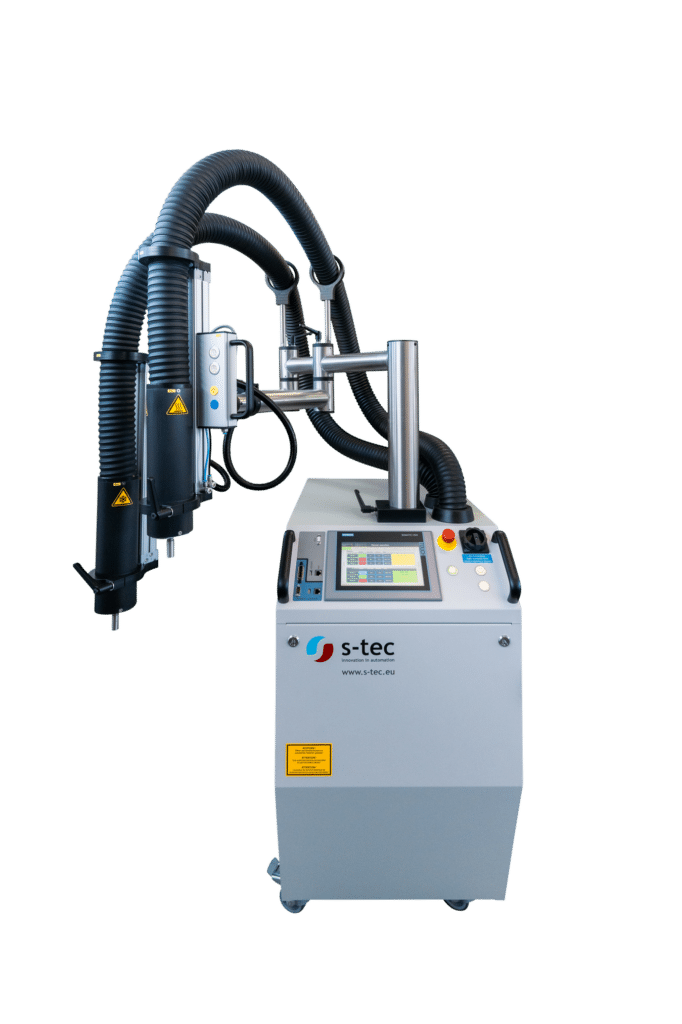Manufacturers of semiconductor materials and electronic components such as microprocessors and integrated circuits, as well as mechanical components, require test procedures that simulate the effect and behaviour of the components under different environmental conditions.
The environmental simulator “Temperature Stress Routine – TSR 2252 LN” developed by S-TEC GmbH tests electronic and mechanical components made of different materials in a temperature range from -80 to 225 °Celsius, which can optionally be extended up to 350 °C. In addition, the simulator reliably tests in fast cycles between extreme temperature differences.
The possibility of programming cycles, ramps, repetitions, start sequences as well as a recipe management of the data sets make the TSR an all-rounder with which the user can quickly perform and document his tests.
Index management is available for temperature selection and ramp selection. The flexible tester can be operated with in-house compressed air – without having to provide liquid nitrogen or liquid oxygen. The cooling system of the TSR is designed for high volume flows, which can vary from 2 l/s up to 10 l/s.
Thanks to the compact design, the swivelling and height-adjustable supply hose and three different
test bell sizes, the TSR can be
can be optimally adapted to any working area. The tests are easy to perform with repeatable accuracy thanks to the user-friendly HMI interface with self-explanatory menu guidance.

Manufacturers of semiconductor materials and electronic components such as microprocessors and integrated circuits, as well as mechanical components, require test procedures that simulate the effect and behaviour of the components under different environmental conditions.

Our environmental simulator “TSR2252LN-MH” is a further development of our standard TSR. The version with motorised head has the special feature that the head on which the test bells are located can be moved up and down via a servo drive and has an integrated return of the exhaust air from the thermal cap.
An adjustable torque ensures optimal positioning. The head module has an additional display for user-friendly operation.
Both streamers can be ordered with a 16A or 32A connection.
The test bells of the standard TSR and the MH model (thermal caps) have a model-dependent design and can therefore not be combined with each other.
Manufacturers of semiconductor materials and electronic components such as microprocessors and integrated circuits, as well as mechanical components, require test procedures that simulate the components’ performance and behavior under different environmental conditions.
Our Temperature Stress Routine System (TSR) better known as “Temperature Forcing System”, Temperature Forcing Control System or Temperature Forcing System, is a type of device used in various industries and applications to control and manipulate temperature conditions for testing, calibration and research purposes.
The TSR is used to subject objects or materials to controlled temperature changes. This is useful for testing how various components, devices, or materials perform under different temperature conditions. A controller designed for these purposes manages and maintains the desired temperature settings. It can be programmed to follow specific temperature profiles or patterns. Here, the TSR covers a wide temperature range from -80 to +225 degrees.
Our TSR provides precise control over temperature conditions. Temperature control can be controlled by both internal and external temperature sensors. The most common computer interfaces for setting and monitoring temperature profiles are included as standard.

The Temperature Stress Routine finds its application in several areas of the semiconductor and microchip industries, including electronics testing (for thermal stress on electronic components), materials testing (evaluating how materials perform under extreme temperatures), and environmental testing (simulating temperature variations that products may experience during transportation or storage).
The TSR plays a critical role in quality control, research and development by enabling engineers and scientists to evaluate how products, materials or components perform under different temperature conditions.
> MHU (automatic placement machine)
> Switch cabinet construction
> Equipment for tempered testing
> Contacting station
> Thermo unit
> Consulting & Planning
> Development & Construction
> Production & Assembly
> Maintenance & Service
> and more

We are experts for innovative automation solutions, plant engineering and construction. In the field of standard plant engineering and special machine engineering, our services include the development, production and integration of machines and plants.